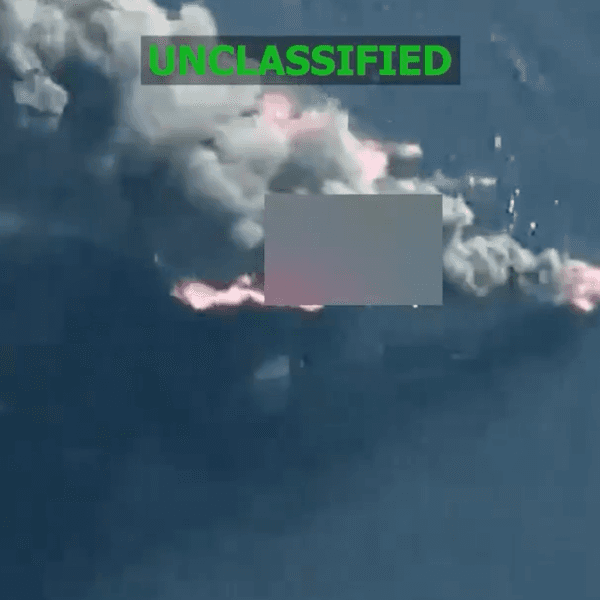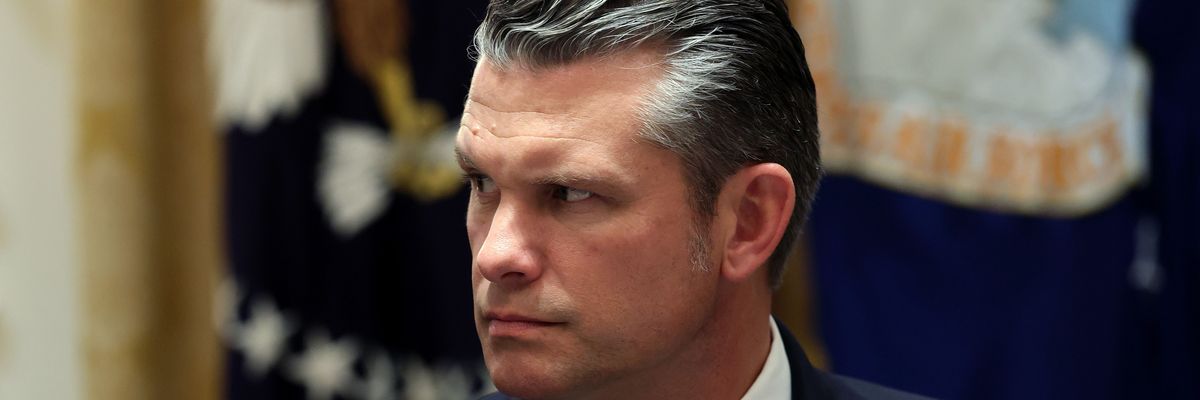The Trump administration's deadly strikes on boats in the Caribbean and Pacific have alarmed legal experts, Democratic lawmakers, and a small number of Republicans in Congress since they began in early September, but new reporting Thursday revealed that before the White House began the campaign that has now killed more than 80 people, a high-level military lawyer warned officials that the attacks would not be lawful—and was swiftly pushed aside.
NBC News reported that Senior Judge Advocate General (JAG) Paul Meagher, a Marine colonel at US Southern Command (SOUTHCOM) in Miami, raised legal concerns in August about planned operations involving lethal strikes on alleged drug boats in the region.
Other military lawyers also raised concerns, according to two senior congressional aides and one former senior US official who spoke about Meagher's attempt to stop the strikes from happening.
Meagher specifically said that killing people aboard boats that the administration suspected of carrying drugs could amount to extrajudicial killing and expose service members involved in the operations to legal disputes.
President Donald Trump, Defense Secretary Pete Hegseth, and Secretary of State Marco Rubio have called the victims of the strikes "narco-terrorists" without providing any proof publicly of their crimes. They have insisted that the strikes are part of an "armed conflict" the US is engaged in with Venezuela, which they have claimed is harboring drug cartels that are "poisoning" Americans with drugs including fentanyl.
US agencies and the United Nations have assessed that Venezuela plays virtually no role in the trafficking of fentanyl to the US. It is a hub for the transport of cocaine, mainly from Colombia, which is sometimes sent via boat to the US, but the military has previously intercepted boats, arrested those aboard if contraband was found, and seized the drugs.
Meagher's concern that the administration was planning to commit extrajudicial killings was not previously known, but it has been echoed by US-based legal experts, Venezuela's ambassador to the UN, and an official with Amnesty International.
Months after Meagher raised the concern that US service members could face legal repercussions for carrying out the attacks, an American lawyer last week said he was preparing to file a legal claim on behalf of the family of one Colombian fisherman who was killed, Alejandro Carranza.
“This is murder, and it is destroying rule of law," said the lawyer, Dan Kovalik.
Chief Pentagon spokesperson Sean Parnell told NBC News Thursday that the agency "categorically denies that any Pentagon lawyers, including SOUTHCOM lawyers, with knowledge of these operations have raised concerns to any attorneys in the chain of command regarding the legality of the strikes conducted thus far because they are aware we are on firm legal ground."
He repeated the administration's claim that the strikes are lawful under "both US and international law."
Congress has not authorized any military action against Venezuela or drug cartels. Lawmakers in recent weeks have introduced war powers resolutions to require congressional authorization for strikes against either target, but they were voted down by the Republican majority.
A current JAG who spoke to NBC News on condition of anonymity said that "there is no world where this is legal."
Considering the concerns raised by Meagher, veteran and former trial lawyer John Jackson asked: "Where are the veterans who serve in the GOP right now? There’s no place left to hide."




